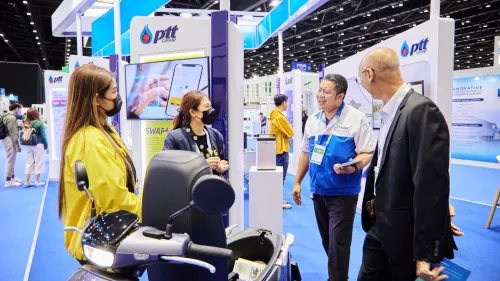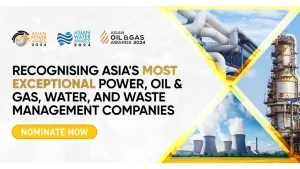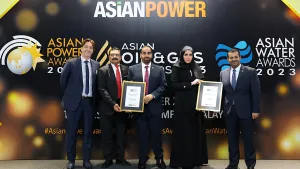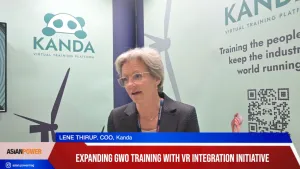China
China’s PV capacity passes 16GW milestone
Commercial PV capacity in China has now passed the 16GW milestone.
China’s PV capacity passes 16GW milestone
Commercial PV capacity in China has now passed the 16GW milestone.
Xinjiang Goldwind gets $1.6b loan for wind projects
Renewable energy is one of the seven “strategic” industries receiving government support in China.
Chinese solar firm puts US project on hold due to trade row
CECEP Solar has put a planned $500 million U.S. project on hold over an anti-dumping trade dispute The company's general manager said that a planned installation of China-made panels to generate solar power in California, New Jersey and Texas would be made uneconomic by U.S. anti-dumping moves. "If the solar panel prices increase by, say 30 percent, in the United States, following the move, then we would certainly drop the plan because there's no profit to be made," Cao Huabin, the general manager of CECEP Solar Energy, told a news conference in Beijing. Prices of solar panels in the project, which account for about 70 percent of the costs, are set to jump if Washington imposes duties on imported Chinese products that U.S. rivals say breach agreed global trade rules. "I don't see any alternatives to Chinese solar panels," Cao said, who described Chinese products as having "low prices but good quality." For the source of this story, click here.
US to raise smart grid issue in Nov 20-21 China talks
The United States will push China to take "concrete and measurable" steps to boost U.S. exports. The annual U.S.-China Joint Commission on Commerce and Trade, or JCCT, meeting on Nov. 20-21 "is an important opportunity to address and resolve key trade concerns with China," U.S. Commerce Secretary John Bryson said in a statement. U.S. Trade Representative Ron Kirk and Agriculture Secretary Tom Vilsack will travel with Bryson to Chengdu for the talks just a week after President Barack Obama hosts Chinese President Hu Jintao and other Asia-Pacific leaders in Honolulu for an annual summit meeting. Obama is expected to press Hu on China's currency practices, which many U.S. lawmakers believe give Chinese companies an unfair trade advantage and has become an issue in next year's presidential election. "Through this year's JCCT, we are pressing China for concrete and measurable results on a number of significant issues including China's policies on intellectual property rights, investment and innovation, as well as a range of sector-specific industrial policies," Kirk said. Last month, the Democratic-controlled U.S. Senate passed a bill to crack down on the practice, but the Republican-run House of Representatives has refused to take up the measure on the grounds it could start a trade war. House Democrats waged another effort on Thursday to force action on the bill, but were turned back. "We will continue to press for action on this measure until the House is allowed to work its will," Representative Sander Levin, a senior Democrat, said after the effort failed. At the 2010 JCCT, China promised action on a long list of U.S. concerns, including the development of "smart grid" standards that threaten to prevent U.S. sales. Administration officials said they believed the JCCT dialogue had opened up significant commercial opportunities in areas such as smart grid electric power transmission systems.
China Power and China Coal Energy set up JV
China Power International Development, in partnership with China Coal Energy, will set up a joint venture in China with a total investment of $778m. State-owned China Power International will hold an 80% stake and China Coal will hold 20% interest in China Power Shentou Power Generating. Under the terms of the agreement, the JV will build and operate coal-fired power units in the country. The JV will acquire two coal-fired power generation units with a capacity of 600MW from China Power's Shentou 1 Power plant in Shanxi province and China Coal Energy will ensure sufficient supply of coal. In addition, the two companies will cooperate in future coal-electricity projects.
Another Chinese solar group responds to US trade action
CNPV Solar has denied the allegations made in a trade action against suppliers of crystalline silicon PV cells and modules from the People's Republic of China.
Chinese electric cables found to be substandard
More than 10 percent of the China's electric cables were found to be substandard on sample checks on three major kinds of products.
Suntech's Dr. Shi appointed Chief Chairman of APVIA
Dr. Zhengrong Shi, CEO and founder of Suntech Power Holdings, has been appointed the first Chief Chairman of the Asian Photovoltaic Industry Association. He will hold the post for two years. Since the inception of APIVA on January 16, 2009, it now consists of 670 PV enterprises, 23 industry associations and 15 research institutions. The aim of the association is to encourage technological and economic information exchange, strengthen its members' connection with governments and societies in Asia, accelerate the progress in upgrading and popularization of technology, promote industry economy, while providing services to members and protect their legal rights and interests. Tom Wu, Secretary General of the Taiwan Photovoltaic Industry Association, said, “APVIA has a strong leader in Dr. Shi who can lead the Asian photovoltaic industry to achieve grid parity. We are excited to work together to help drive job growth and solar installations anywhere the sun shines." Dr. Shi founded Suntech in 2001 and inventor of 15 patents in PV technologies and has published or presented a number of articles and papers in PV-related scientific magazines and at conferences.
LDK Solar begins work on Inner Mongolian poly factory
LDK Silicon & Chemical Technology broke ground on its 30,000MT polysilicon manufacturing facility in the Hohhot Cirty’s Jinsan Development Zone.
Asia wind energy market is almost dead, China market seen to shrink
The Asian market for wind energy is disappointing with main drivers China and India seen to post barely flat growth in terms of annual installed capacity, says an expert.
Is Asia ready for new nuclear power plants?
The future of nuclear power generation is in Asia.
China's nuclear power potential
In devising policies, and pursuing its nuclear energy industry, China will strive for all of: 1) National independence for nuclear power technology; 2) Control and independent management of the fuel cycle; 3) Fuel diversity in the electrical power generation industry; 4) Significant source for electric power; 5) Reduction in emissions of air pollutants and CO2; and, 5) Commercialization of an indigenous reactor design, including high temperature gas cooled reactors – pebble bed module (HTR-PM) reactor technology. The current efforts to arrive at up to 40 GWe of nuclear generation capacity by 2020 will only have a limited impact on the current shape of China’s electricity industry.
Is there enough land supply for power plant projects?
Energy is an integral part of economic activity. An adequate energy supply is essential to support industrial activities, fuel the mobility needs for both freight and passengers, and ensure convenience and comfort in life. To facilitate such economic activities, large-scale investment in energy supply infrastructure is necessary, including the upstream oil, gas, and coal; midstream transformation facilities for electric power generation, oil refinery, and gas processing; and distribution networks that can deliver energy to customers. To meet the rapid energy demand growth of 2.4% per year until 2030, the Asian Development Bank estimates that Asia and the Pacific will require a cumulative investment of between $7.0 trillion and $9.7 trillion in the energy sector. Most of the total investment in the energy sector will be concentrated in China, India and Japan and dedicated to electricity generation, transmission and distribution.
Will Smart Grid Utility space continue to expand?
The Smart Grid Utility space is quickly evolving and is a market that will start to accelerate.
Alstom partners with China Electric Power Equipment and Technology
The agreement is for the development of Ultra High Voltage Direct Current power transmission systems in China.
Fitch afrms Datang International Power at 'BB'/stable
Fitch Ratings has affirmed Datang International Power Generation Co. Limited's (DIPG) Long-Term Foreign and Local Currency Issuer Default Ratings (IDRs) at 'BB' with a Stable Outlook. The agency has simultaneously affirmed its senior unsecured ratings at 'BB' and Short-Term Foreign and Local Currency IDRs at 'B'. "The affirmation of the ratings reflects the stable position of DIPG and the parent China Datang Corporation in the face of continued disparity between high coal prices and artificially low electricity tariffs," notes Steve Cox, Director in Fitch's Asia-Pacific Energy and Utilities team. Both DIPG and China Datang Corporation remain a notch above their standalone credit profiles, reflecting potential state support. Fitch applies its parent and subsidiary rating linkage methodology to assess the links between DIPG and China Datang Corporation, and between China Datang Corporation and the sovereign. The standalone credit profile of DIPG and the consolidated profile of its parent are assessed as equivalent to 'BB-' before any assessment of state support provides the single-notch uplift. The Stable Outlook reflects Fitch's expectation that the Chinese government will take adequate steps to support Chinese independent power producers such as DIPG - as evidenced in the retrospective tariff rises for 2010 production in some plants, and April 2010 tariff rises in certain provinces. The Outlook, however, also incorporates Fitch's view that the disparity between coal prices and tariffs will continue and the burden will be primarily born by power producers. Fitch expects DIPG's total adjusted debt/operating EBITDAR to remain above 8.5x over the medium term. However, DIPG and the parent remain exposed to financial deterioration due to a weak thermal power industry and lack of a transparent pass-through mechanism for rising coal prices. However, the risk is partly mitigated by the group's own coal production business. Fitch may take negative rating action if the financial profile of either DIPG or China Datang Corporation deteriorates. Reuters
Fitch cuts Huadian Power International to 'BB-'
Fitch Ratings has downgraded Huadian Power International Limited's (HDPI) Long-Term Foreign and Local Currency Issuer Default Ratings (IDRs) to 'BB-' from 'BB'. The Outlook is Stable. The agency has simultaneously affirmed its Short-Term Foreign and Local Currency IDRs at 'B'. "The downgrade reflects the weakened financial profile of Huadian Power International and its parent, China Huadian Group, in the face of continued disparity between high coal prices and artificially low electricity tariffs. The impact from slow tariff adjustments is highest for Huadian among Fitch-rated Chinese thermal power producers," notes Steve Cox, Director in Fitch's Asia-Pacific Energy and Utilities team. HDPI and China Huadian Group have, overall, worse interest coverage and leverage profile compared with their respective peers in China, as well as a heavy debt-funded capex programme. Based on Fitch's parent and subsidiary rating linkage methodology, HDPI continues to be notched one level above its standalone credit profile, reflecting potential state support through China Huadian Group. The same methodology is being applied to China Huadian Group, which assesses its links to the sovereign. On a standalone basis, both the credit profiles of HDPI and China Huadian Group have been downgraded to 'B+' from 'BB-', before any assessment of state support. Under current market conditions, the group's asset portfolio has greater exposure to the fundamental problems affecting all thermal power producers in China: a combination of tariff controls, rising coal prices, exposure to non-fulfilment of contract coal, and volatility in the non-contract coal spot market. The company's interest coverage is also negatively affected by the impact of base rate rises on floating-rate loans, and high borrowing costs in the CNY bond market. In FY10, HDPI's funds from operations (FFO) interest coverage fell below 2.0x from 3.0x in FY09. Fitch continues to expect HDPI's total adjusted debt/operating EBITDAR to remain above 10x in the medium term. The Stable Outlook reflects Fitch's expectation that the Chinese government will take adequate steps to support Chinese independent power producers such as HPDI - as evidenced in the retrospective tariff rises for 2010 production in some plants, and April 2010 tariff rises in certain provinces. The Outlook, however, also incorporates Fitch's view that the disparity between coal prices and tariffs will continue and the burden will be primarily born by power producers Reuters
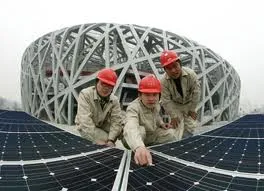
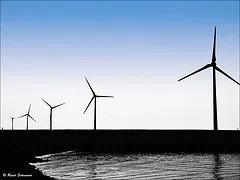
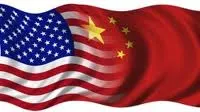
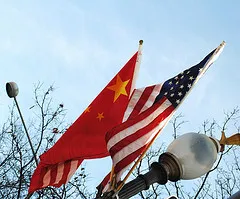
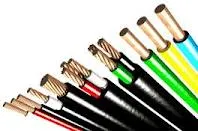
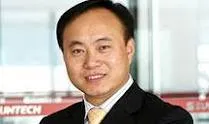






 Advertise
Advertise
